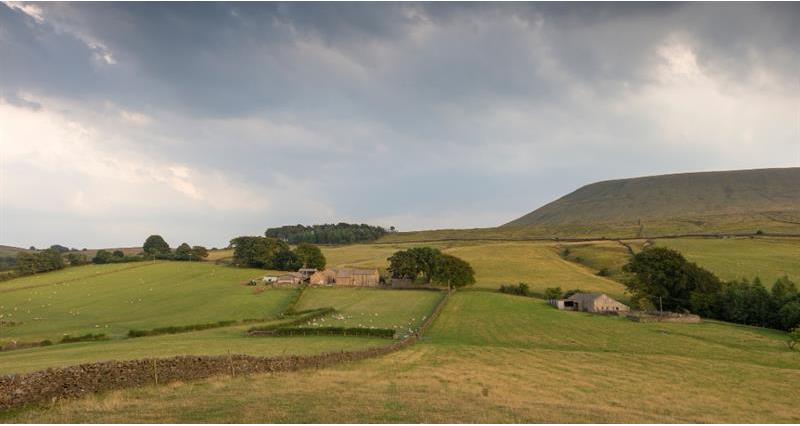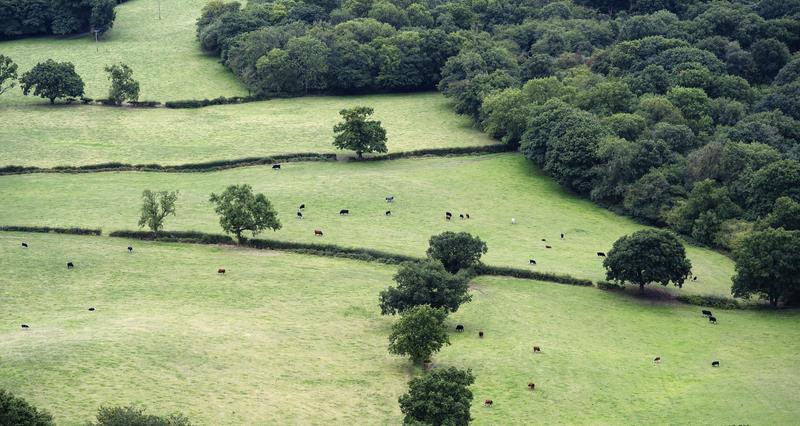NFU President Tom Bradshaw branded the newly released figures as ŌĆ£unacceptableŌĆØ, after they showed a ┬Ż130 million yearly underspend against plans between April 2023 and March 2024.
This is in addition to an underspend of ┬Ż125m in 2021/22 and ┬Ż103m in 2022/23.
The Farming and Countryside Programme is responsible for designing and delivering the new farming schemes in England. .
Responding to the news, NFU President Tom Bradshaw said: ŌĆ£We have repeatedly highlighted our concerns about an underspend and at long last we now have an honest admission of DefraŌĆÖs failure.
ŌĆ£A ┬Ż358 million underspend is unacceptable and nothing short of a kick in the teeth to farmers and growers who have faced years of uncertainty and loss of income during the agricultural transition.ŌĆØ
Gaps and questions unanswered
ŌĆ£LetŌĆÖs be clear, this underspend hasnŌĆÖt happened because the investment isnŌĆÖt needed,ŌĆØ Tom insisted.
Schemes to replace BPS have not been completed in time Tom said, leaving ŌĆ£many gaps and questions unansweredŌĆØ.
╗╩╝ę╗¬╚╦has consistently flagged problems with the new ELMs schemes since their inception.
ŌĆ£Despite some improvements, there is still a big gap in spending as the money saved from the continued BPS reductions has sat gathering dust,ŌĆØ Tom added.
ŌĆ£LetŌĆÖs be clear, this underspend hasnŌĆÖt happened because the investment isnŌĆÖt needed.ŌĆØ
NFU President Tom Bradshaw
ŌĆ£For years, the NFU has pressed the need for the new schemes to be in place before reductions in BPS began to avoid this very issue and avoid funding being left unspent at a time when farmers needed it most.
ŌĆ£Twelve months ago, when there were further issues with the rollout of the new schemes, we were a lone voice calling for reductions in BPS to be paused.
ŌĆ£It wasnŌĆÖt, and yet farmers and growers continued to face record inflation levels and devastating weather events. WeŌĆÖre now seeing the consequences as confidence in the sector has collapsed.ŌĆØ
The NFUŌĆÖs own survey work found confidence levels are at their lowest across the majority of sectors since records began in 2010.
The phasing out of BPS payments (86%), rising input prices (80%) and government regulation and legislation (80%) topped the factors farmers said would negatively affect their farm business.
Carry the funding forwards
ŌĆ£The risk this cumulative lost income poses to the viability of farm businesses, through no fault of their own, is well known,ŌĆØ Tom added, citing the NFUŌĆÖs modelling work which showed that, on average, uplands businesses lost 37% of their support payments under the 2023 scheme options.
In response to the news of the underspend, Farming Minister Daniel Zeichner said the government would ŌĆ£restore confidence and stability to farmers to boost rural economic growth and strengthen our food securityŌĆØ.
As part of its ŌĆśnew dealŌĆÖ, the government has said it will be:
- Optimising Environmental Land Management schemes┬Āso they produce the right outcomes for all farmers ŌĆō including those who have been too often ignored such as small, grassland, upland and tenanted farms ŌĆō while delivering food security and nature recovery in a just and equitable way.
- Seeking a new veterinary agreement┬Āwith the European Union to cut red tape at our borders and get British food exports moving again.
- Protecting farmers from being undercut┬Āby low welfare and low standards in trade deals.
- Using the governmentŌĆÖs purchasing power┬Āto back British produce.
- Setting up a new British Infrastructure Council┬Āto steer private investment in rural areas including broadband rollout in rural communities.
- Speeding up the building of flood defences┬Āand natural flood management schemes, including through a new flood resilience taskforce to protect rural homes and farms.
- Introducing a land-use framework┬Āwhich balances long-term food security and nature recovery.
NFU President Tom Bradshaw called on the Minister to commit to his stance when in opposition, that any underspend in agricultural funding should be rolled over into future years and calls for clarity from Defra about how this would be done.
ŌĆ£We now ask for the same thing ŌĆō for government to carry this much-needed funding forward so it can finally be put to its intended use ŌĆō building resilience, investing in sustainable homegrown food production and delivering the governmentŌĆÖs legislated environmental targets,ŌĆØ Tom concluded.



